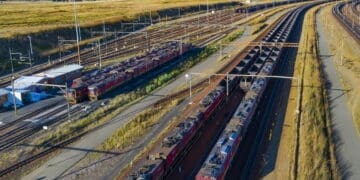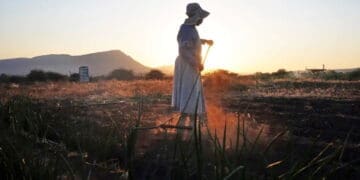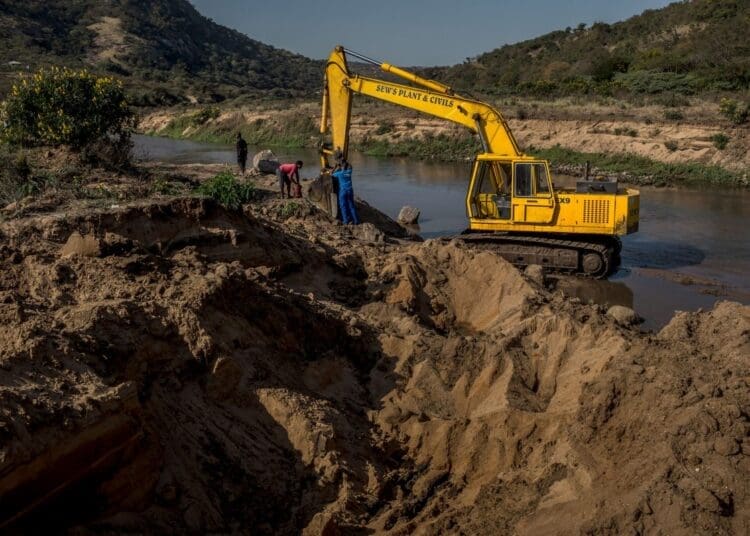Small scale sand miner Masala Nedombeloni hopes the proposed Mineral Resources Development Bill (2025) will help improve the sector, make access to funding quicker and smooth out red tape.
“We have environment, we have skills, but no finance. Right now, informal buyers set the price. If we can access the fund and IDC support, we can sell legally and reinvest in our community,” said Nedombeloni.
According to industry estimates, ASM contributes R30–40 billion annually to the economy, yet most of this activity remains undocumented. The World Bank notes that globally, ASM supports over 40 million people. Formalisation could boost tax revenue, ensure safer working conditions, environmental compliance, and local beneficiation.
A standout feature of the draft Mineral Resources Development Bill (2025) published for public comment on 20 May 2025, is the creation of an Artisanal and Small-Scale Mining (ASM) Development Fund, expected to draw from departmental allocations, donor agencies, and private-sector contributions.
The Industrial Development Corporation (IDC) has committed financing windows, which includes a R400 million exploration facility launched in 2024. It was aimed at smaller miners and junior explorers. Applicants are expected to provide business plans, permit details, and project proposals through provincial DMRE offices.
Artisanal and small-scale miners (ASM) extract billions of rands worth of minerals each year, often in informal conditions. These small-scale miners extract minerals like sand, gravel, clay, limestone, quartz, dimension stone, salt and even small coal deposits. Many operate often outside the law, without permits, at the mercy of middlemen, and small traders.
For decades, these miners have lived in the shadows, criminalised for trying to make a living and blocked by a maze of bureaucracy.
For communities dependent on ASM, the outcome could reshape rural livelihoods and local economies. The consultation period closed on 13 August 2025.
Under existing rules, getting a small-scale mining permit can take years, with paperwork stacked against low-capacity operators. Many have been left vulnerable to exploitation and reliant on informal buyers. The new Bill proposes clearer licensing categories for artisanal and small-scale miners, simpler approval timelines, and explicit support for community beneficiation projects.
“You could spend years applying for a license while still trying to put food on the table,” said Thandi Mokwena, an informal rock miner in Limpopo.
For her and others, the new Bill signals recognition that ASM is not a side hustle but a key economic contributor.
The proposed Bill, by the Department of Mineral Resources and Energy (DMRE), includes several provisions aimed at formalising small-scale mining. It introduces new permit categories for artisanal and small-scale mining (ASM), with specific limits on land size and permit duration. The Bill also proposes the creation of designated ASM mining zones, where small-scale miners can operate under more supportive regulations. It aligns mining authorisation and environmental permitting processes to reduce bureaucratic delays.
In addition, the Bill allows ASM operations on private agricultural land in certain cases, though it currently lacks clear guidelines on landowner consultation or compensation. The legislation also includes provisions for local beneficiation, community participation, and empowerment, though some stakeholders argue that these sections are vague and could be difficult to implement fairly.
Stakeholders have expressed both support and concern regarding the Bill.
AgriSA has raised concern over provisions allowing ASM to access private agricultural land.
“The Bill introduces provisions that would allow artisanal and small-scale mining (ASM) operations to access private agricultural land without any guidance as to how meaningful consultation should take place or on compensation requirements.”
AgriSA also warned that these measures could threaten farmers’ property rights, food security, and rural sustainability.
Minerals Council South Africa CEO Mzila Mthenjane said “the current draft does not adequately encourage investment and growth in the mining industry.”
He said certainty and predictability in legislation are crucial to attract both local and foreign investors.
Mining policy expert Lili Nupen offer a nuanced perspective, acknowledging the Bill’s potential while highlighting challenges.
“If implemented faithfully, especially in aligning mining and environmental permitting timeframes and giving clarity on critical minerals strategy, the Bill holds promise. But without consistent policy execution, it could fail to deliver on its intentions,” she said.
Azwi@vutivibusiness.co.za
































































